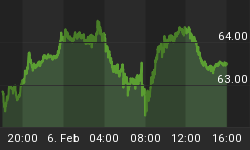Roughly a year ago I penned an article titled "How Obama Saved the Economy." That article garnered quite a bit of attention, including e-mails and comments from readers, many of them angry or hostile.
It seems this readership did not include many folks in Washington, including the current administration, which chose not to follow the simple path I laid out that could have turned our economy around in short order.
Instead, the White House, Federal Reserve, and Congress went the other way on nearly every issue that I discussed in the article.
The results tell the story:
- Americans are infuriated at continued job losses
- The housing market has largely stagnated, and is showing signs of a possible double dip
- Cheap money has continued to fuel a massive bubble in bonds
- Companies have started issuing 100-year bonds to lock in cheap interest rates while investors continue to pile into debt securities, which will certainly take a beating over the next 5 years (Norfolk Southern selling 100-year bonds, CNBC)
- Money supply (M3) year-over-year growth has recently turned up, but is still negative (NowAndFutures.com)
Maybe I'm out of touch, but these examples hardly sound to me a like a job well done.
Don't get me wrong; I'm no cynic. Economist David Rosenberg of Gluskin Sheff recently announced that the United States is not exiting our recent recession, but has simply been in an upswing of what he thinks will prove to be a severe Depression.
I hate to tell Gluskin Sheff that they are paying a substantial salary to someone who is simply wrong. The United States is not in a depression, as Rosenberg would have us believe. True, the market has pulled back somewhat as the economy has stagnated (not double dipped), but at this point the market is right around the bottom of a trading range (10,000 to 10,500 on the Dow) where it has spent roughly 80% of the trading days over the past 12 months.
The real question to ask is where the Fed has been during all this.
Over the past two years the Fed has lacked both the direction and the decisiveness to help restore confidence in the US economy or make any meaningful headway on key indicators like employment, housing, or money supply.
History will show that typically the Fed supports the party in power in pursuing fiscal and monetary policy. The Fed can almost always be relied on to stimulate the market leading up to an election in order to bolster support for incumbents. This time has been markedly different.
Now it seems doubtful there is anything the Fed can do to save Democrats come November. At this point there is simply nothing Fed can do to help bolster the economy in any significant way that will be noticeable on Main Street (where the voters are) before the election.
Under Carter the Misery Index became a useful tool in measuring economic activity. Consisting of the inflation rate plus unemployment, this index contributed greatly to Ronald Reagan's campaign, and no doubt helped him defeat Carter.
Generally speaking, it is nearly impossible for a party in power to remain in power with the Misery Index in the upper teens. Under Carter this number reached an all-time high at nearly 22 before dropping to just below 20 at the end of his term. During Reagan's 8 years in office, this number fell by more than 10 points. Bush's (H.W.) term in office saw the index peak around 12.5, and Clinton around 10.5.
At this point the Misery Index, using stated unemployment numbers, is roughly 11. Unfortunately, we all know how accurate stated unemployment numbers are. In fact, the index is actually much higher, taking into account true unemployment numbers. With this revision, the true value of the misery index is likely in the upper teens, about 6 points higher than it is currently.
Note: It is a little known fact that the stated unemployment rate has historically been measured by U5, which includes those worker whose hours have been cut, those who have quit looking for work, and several other categories that aren't included in U3 (a much more narrow measure of unemployment). However, in 1994 the US Bureau of Labor Statistics changed its policy, making U3 the stated level of unemployment.
Recently CNBC anchor Mark Haines has taken up the argument that there exists no cause and effect link between fiscal and monetary policy, directed by Washington, and economic activity. He contends, instead, that any link between the two is simply coincidence. Unfortunately for Mark, I'd bet that he's a whole lot better at reading a teleprompter than he is at forecasting, analyzing, or assessing the markets, much less economic policy.















